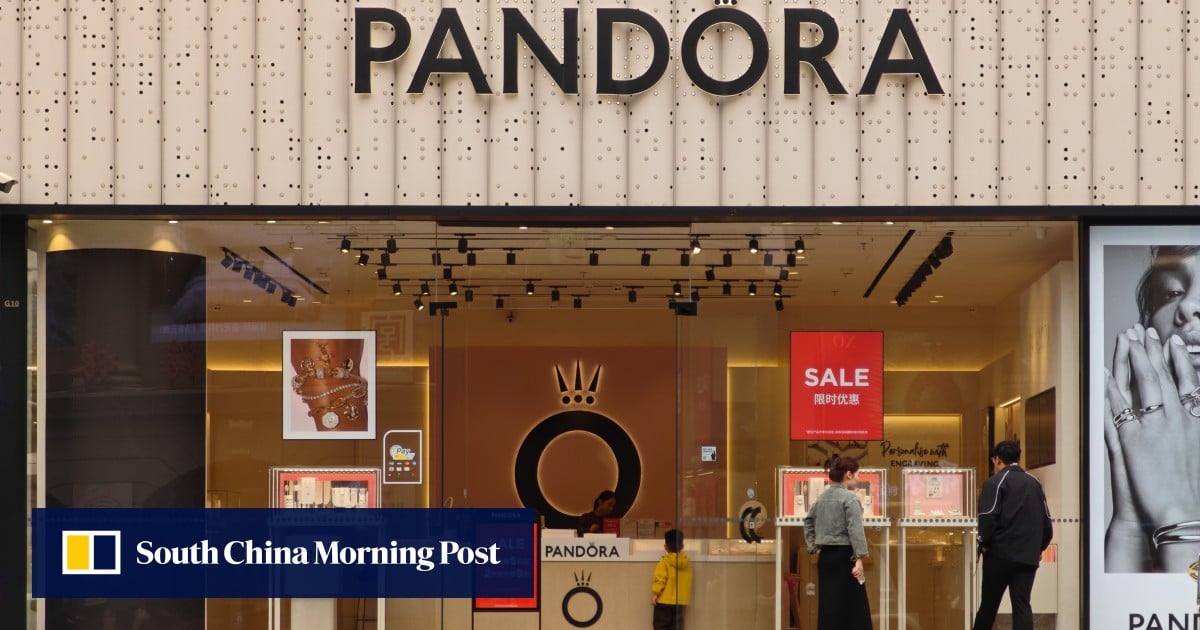The world’s largest jewellery company by volume is facing a wave of store closures across China – a move that serves to illustrate a broader retreat by foreign brands as consumer preferences shift towards practical products that offer more value for the money.
Danish jewellery brand Pandora, known for its fast-paced product launches and global sales of more than 100 million pieces a year, announced in its second-quarter earnings report on August 15 that it would expand its original plan to close 50 stores in China this year to 100 stores.
According to Pandora’s annual financial reports, its sales in China peaked in 2019 at 1.97 billion Danish kroner (US$305.73 million). But since the global pandemic, sales in China have steadily declined, dropping to 1.126 billion kroner in 2021, 737 million kroner in 2022, and 564.2 million kroner in 2023. Last year, Pandora’s revenue in China plummeted to just 416 million kroner, less than a quarter of the 2019 peak.
“Pandora is more about aesthetics and versatility for me; it’s not something to buy for value retention,” said Vicky Wang, a Pandora enthusiast from Jiangsu province.
Over the past three months, she spent 7,500 yuan (US$1,044) on a half-dozen charm bracelets but is now trying to sell what she considers “impulse purchases” on China’s second-hand trading platform Xianyu.
The closures by Pandora, which did not immediately respond to an emailed request for comment, are not isolated incidents among foreign retailers struggling in China.
